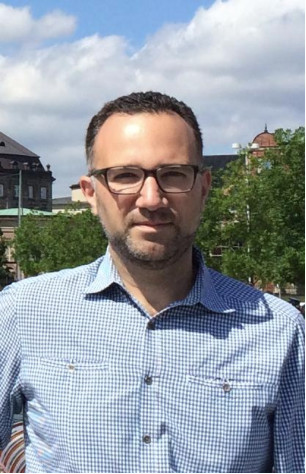Talks and presentations
In this map you can see a geographic depiction of where science has taken me over the years. There are a lot of gratifying things associated with being a scientist, and one of them is the unique opportunity to travel around the world and meet people from all nationalities and backgrounds.
This section is still under construction. More talks will be added shortly.
August 02, 2021
NIMH Center for Multimodal Imaging - Workshop on Naturalistic Stimuli and Individual Differences, National Institute of Mental Health, NIH (Online), Bethesda, MD, USA
Overview of state-of-the-art regarding our understanding of sources of individual differences in resting-state fMRI. This talk first describes the primary sources of variability, and then provide some thoughts on how to address those sources depending on whether a given study targets “state-level” or “trait-level” properties of the brain. []
March 03, 2020
Brain Functional Organization, Connectivity and Behavior, Westing Hotel, Whistler, CA
Overview of recent work looking at the cognitive correlates of time varying functional connectivity, as well as some thoughts on future directions.
August 29, 2019
NIH Summer Course (2019), National Institutes of Health, Bethesda, MD
Introductory talk to dynamic functional connectivity. Here I discuss what is dynamic functional connectivity, how do we typically measure it. It then goes into what it is known today about how to interpret results.
May 15, 2019
ISMRM 27th Annual Meeting, Palais de Congres, Montreal, QC, Canada
This conference talk describes our work looking at how to extract information about on-going cognition during rest using time varying functional connectivity and hemodynamic deconvolution.
July 13, 2018
NIH Summer Course (2018), National Institutes of Health, Bethesda, MD
Introductory talk to multi-echo fMRI. Here I discuss what is multi-echo fmri, basic operations you can do with multi-echo data (e.g., optimal combination), and more advanced approaches such as me-based denoising (ME-ICA) and multi-ech based deconvolution (ME-SPFM).
June 21, 2018
ISMRM 27th Annual Meeting, Paris Expo Porte de Versailles, Paris, France
Here I describe our work on the design and evaluation of a multi-echo based formulation of the hemodynamic deconvolution algorithm called free paradigm mapping.
August 11, 2017
NIH Summer Course (2017), National Institutes of Health, Bethesda, MD
Introductory talk to machine learning (ML) for neuroimagers. Here I introduce basic concepts such as supervised and unsupervised learning, regression, classification, gradient descent, overfitting and testing. I next discuss a few examples of how ML can be applied to functional neuroimaing data.
December 20, 2016
Invited Talk, Centro Integral de Neurociencias, Hospital de Madrid, Madrid, Spain
Overview of alternative ways to acquire and analyze fMRI data other than typical task-based experiments. Note that this talk is in Spanish language.
May 12, 2016
ISMRM 24th Annual Meeting, Suntec Singapore Convention & Exhibition Center, Singapore, Singapore
Here I describe our work looking at unconventional BOLD responses such as negative and transient responses that accompany block task designs.
March 24, 2016
TTU Neuroimaging Symposium, Texas Tech University, Lubbock, TX
Here I give an overview on our efforts at the time in developing methods for multi-echo fMRI, and how you can use multi-echo fMRI to perform automatic denoising.
July 16, 2015
Invited Talk, Basque Center on Cognition, Brain and Language, San Sebastian, Spain
July 03, 2015
Invited Talk, Max Planck Institute, Leipzig, Germany
August 29, 2014
NIH Summer Course (2014), National Institutes of Health, Bethesda, MD
Introductory talk to realtime fMRI and fMRI-based neurofeedback. Here I describe what is realtime fMRI, the details of the realtime fMRI system that we have running at the NIH, and a series of studies that takes advantage of this unique technology.
August 01, 2014
Invited Talk, 1st International Conference on Brain Development, Beijing, China
June 01, 2012
Invited Talk, Chinese Academy of Sciences, Beijing, China
May 11, 2012
ISMRM 20th Annual Meeting, Melbourne Convention & Exhibition Center, Melbourne, Australia
Original description of our work looking at the true extent of fMRI activity when signal-to-noise ratio is sufficiently high and we also take into account transitory and negative BOLD responses.
